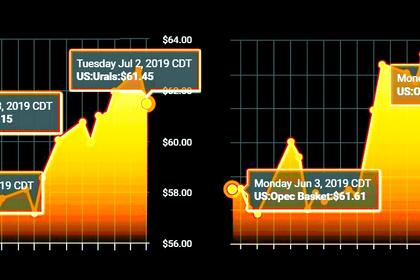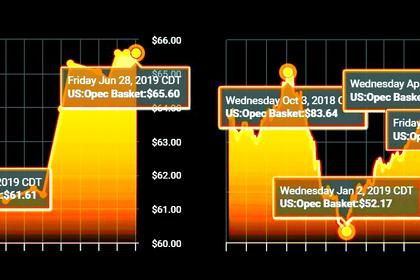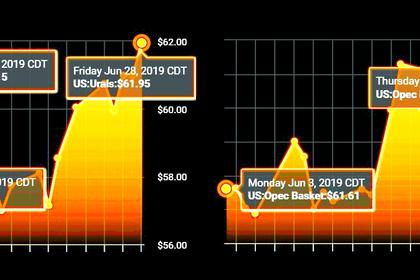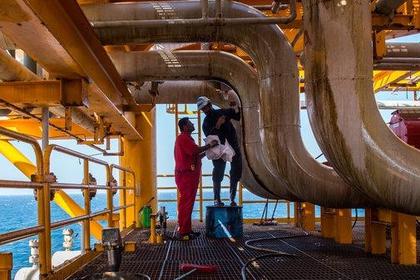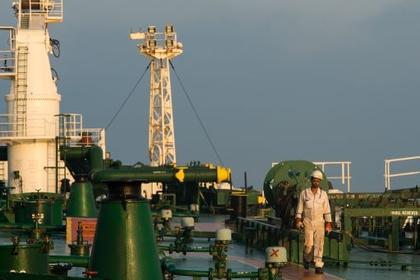
U.S., BRITAIN IRAN SANCTIONS
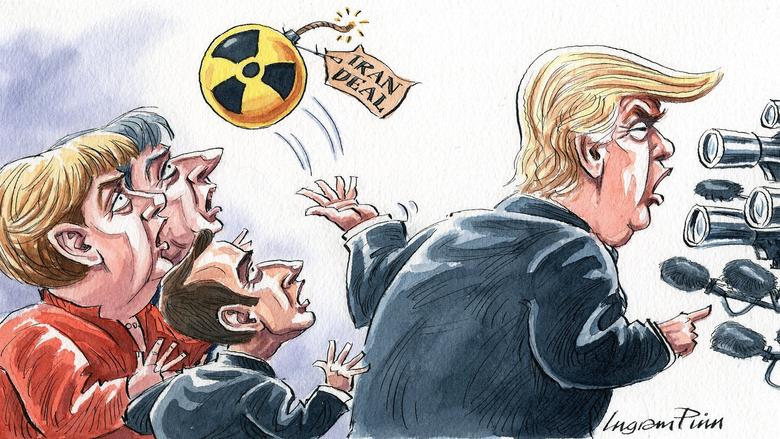
REUTERS - British Royal Marines seized a giant Iranian oil tanker in Gibraltar on Thursday for trying to take oil to Syria in violation of EU sanctions, a dramatic step that drew Tehran's fury and could escalate its confrontation with the West.
The Grace 1 tanker was impounded in the British territory on the southern tip of Spain after sailing around Africa, the long route from the Middle East to the mouth of the Mediterranean.
Iran's Foreign Ministry summoned the British ambassador to voice "its very strong objection to the illegal and unacceptable seizure" of its ship. The diplomatic gesture lifted any doubt over Iran's ownership of the vessel, which flies a Panama flag and is listed as managed by a company in Singapore.
U.S. National Security Advisor John Bolton said the British move was "excellent news."
"America & our allies will continue to prevent regimes in Tehran & Damascus from profiting off this illicit trade," Bolton said on Twitter.
Shipping data reviewed by Reuters suggests the tanker was carrying Iranian oil loaded off the coast of Iran, although its documents say the oil is from neighboring Iraq.
While Europe has banned oil shipments to Syria since 2011, it had never seized a tanker at sea. Unlike the United States, Europe does not have broad sanctions against Iran.
"This is the first time that the EU has done something so public and so aggressive. I imagine it was also coordinated in some manner with the U.S. given that NATO member forces have been involved," said Matthew Oresman, a partner with law firm Pillsbury Winthrop Shaw Pittman who advises firms on sanctions.
"This is likely to have been meant as a signal to Syria and Iran - as well as the U.S. - that Europe takes sanctions enforcement seriously and that the EU can also respond to Iranian brinkmanship related to ongoing nuclear negotiations."
Authorities in Gibraltar made no reference to the source of the oil or the ownership of the ship when they seized it.
But Iran's acknowledgment that it owned the ship, and the likelihood that its cargo was also Iranian, drew a link between the incident and a new U.S. effort to halt all global sales of Iranian crude. Iran describes that as an illegal "economic war".
European countries have so far tried to appear neutral in the escalating confrontation between Tehran and Washington, which saw the United States call off air strikes against Iran just minutes before impact last month, and Tehran amass stocks of enriched uranium banned under a 2015 nuclear deal.
The Gibraltar government said it had reasonable grounds to believe that the Grace 1 was carrying crude oil to the Baniyas refinery in Syria.
"That refinery is the property of an entity that is subject to European Union sanctions against Syria," Gibraltar Chief Minister Fabian Picardo said. "With my consent, our port and law enforcement agencies sought the assistance of the Royal Marines in carrying out this operation."
U.S. SANCTIONS TIGHTENED
A spokesman for British Prime Minister Theresa May welcomed Gibraltar's move.
Spain, which challenges British ownership of Gibraltar, said the action was prompted by a U.S. request to Britain and appeared to have taken place in Spanish waters. Britain's Foreign Office did not respond to a request for comment.
Iran has long been supplying its allies in Syria with oil despite sanctions against Syria. What is new are U.S. sanctions on Iran itself, imposed last year when President Donald Trump pulled out of an agreement that had guaranteed Tehran access to world trade in return for curbs on its nuclear program.
Those U.S. sanctions have been tightened sharply since May, effectively forcing Iran from mainstream oil markets and making it desperate for alternative customers. Iran has grown more reliant on its own tanker fleet to transport whatever oil it can sell and to store a growing stockpile of unsold output.
The U.S.-Iranian confrontation has escalated in recent weeks, taking on a military dimension after Washington accused Tehran of attacking tankers in the Gulf and Iran shot down a U.S. drone. Trump ordered air strikes but called them off at the last minute, later saying too many people would have died.
European countries opposed Trump's decision to exit the nuclear deal last year, and they have promised to help Iran find alternative ways to export, but with little success so far.
Iran has said it wants to keep the nuclear deal alive but must receive promised economic benefits. This week it announced it had accumulated more low-enriched uranium than the deal allows and from July 7 will refine uranium to a greater purity than permitted.
By restricting Iran's ability to move oil, U.S. sanctions have choked off Tehran's Syrian allies, causing fuel shortages in government-controlled areas. In May, Syria received its first foreign oil for six months with the arrival of two shipments, one from Iran, a source said at the time.
Earlier this year, Reuters revealed that the Grace 1 was one of four tankers involved in shipping Iranian fuel oil to Singapore and China, violating U.S. sanctions.
The 300,000-tonne tanker is registered as being managed by Singapore-based IShips Management Pte Ltd. Reuters was unable to establish contact with the firm for comment.
It was documented as loading fuel oil in the Iraqi port of Basra in December, though Basra did not list it as being in port and its tracking system was switched off. The tanker reappeared on tracking maps near Iran's port of Bandar Assalyeh, fully loaded.
Homayoun Falakshahi, Senior Analyst at London-based energy data firm Kpler told Reuters the ship had loaded Iranian crude in mid-April from Iran's export port of Kharg Island.
A maritime intelligence source said the ship may have made the journey around Africa to avoid the Suez Canal, where such a large super-tanker would have had to unload its cargo and refill after passing through, exposing it to potential seizure.
-----
Earlier:
